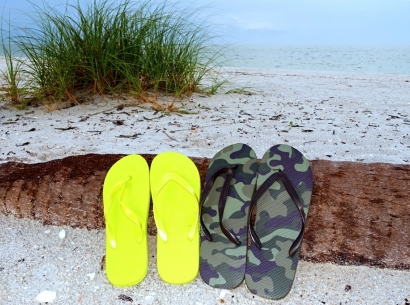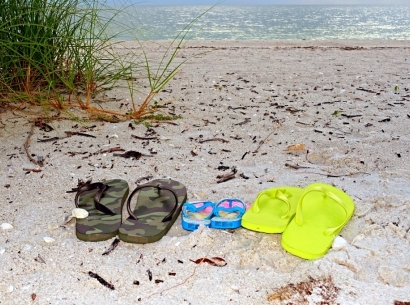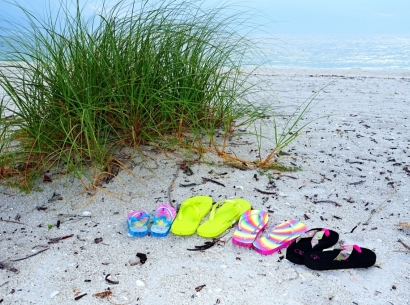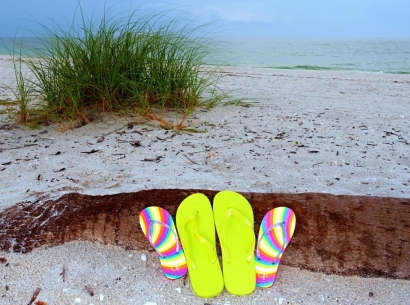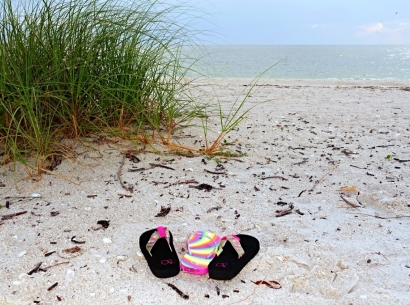Psychotherapy
Areas of Emphasis psychotherapy for couples, individuals (males issues/females issues), families, LGBTQ community, sexual issues, psychotherapeutic, counseling, and assessment services based on respect to individuals, their gender, family values, culture, and religion
- multi-cultural relationships
- LGBTQA++ and specifically gender identity issues
- men’s issues
- women’s issues
- sexual dysfunctions and sexual addiction
- marriage, infidelity, separation, and divorce
- relational concerns
- family therapy
- parenting challenges
- behavioral and school issues
- defiant and oppositional teenagers
- career stress and changes
- personal growth
- communication skills
- self-esteem and empowerment
- mind and body connection work
- transitions of life/career/family
- survivors
- anxiety and depression
- death, loss, and grief
- trauma
- substance abuse and recovery in family
Comments
“Dear Eva, it has been almost a year since our last session. I am sending this message from hospital and next to me there is our new born daughter. I have already told her that she got one co-parent , meaning you! Without your tremendous help, guidance, and smart tactics this miracle would not be possible. We would love to stop by in your office to introduce you our little Jane and invite you to her Christening ceremony.”
“Eva, you helped me to get over the death of my mom and held me all the time when I was refusing and hating my dad, blaming him for her death. You know what? He is the best dad ever and I would not find out without your patient guidance and support during the toughest moments in my life.”
“Dear Eva, when we first met I was a loud, angry man who was not able to speak for himself and keep his job. I felt dumb, ugly, and helpless. With you I learned to be proud of myself, express my opinions such a way that is not offending anyone. I was promoted and I love my job. Also I have a girlfriend who I love and she loves me, first time in my life! Eva, we cannot thank you enough!”
“Eva, thank you for all your involvement with the LGBTQ Center.”
“We felt accepted, we felt understood, and we got a wonderful chance to grow. We are so incredibly blessed and lucky that we got the opportunity to work with you ,you helped us to safe our marriage. You had a way to involve each of us in helping to understand the other person’s perspective and culture identity. You made us work hard on it and it paid off! We thought there is no hope for us. However with you we found otherwise!"
Children and their messages are unique in every respect. First, their messages and notes for me might look like a drawing of their family, drawing of themselves, something they dream about, or they like to do. Notes from children also look like "a message for Eva" about what their smile is doing, invitation to their birthday party, or a menu card of a restaurant they dream about and plan to open one day... Messages, notes, and letters from children belong to my treasure tank...
Dear Eva, our house has become home again. We enjoy being together, meaning all of us. My step-daughter fortunately got over the complicated relationship with her biological father and is able to accept the care and love we are giving her. The whole family gave me a mandate to thank you. Thank you so much, you are always welcome to our home!
“Dear Eva, you changed our lives and opened new perspectives of our relationship. I went through an incredible challenge with you and thank to that I live with my girlfriend and her son in a happy and fully satisfying relationship! Your therapy changed our lives completely. And sex………. is great! Eva, I hope you do not mind if I refer to you a friend of mine who has some issues...”
Florida Rural Legal Services (www.frls.org) is a nonprofit law firm that provides free civil legal services to low-income residents in several counties (Lee and Collier included).
They offer to help low-income transgender individuals who need help navigating the process of a legal name and/or gender marker change.
Call (800) 476 – 8937.
The School District of Lee County approved a gender affirmative transgender care standards of care for all students in Lee County.
The School District of Lee County approved a gender affirmative transgender care standards of care for all students in Lee County. They did fantastic job and there is nothing that should be changed. It is simply perfect and up to date meeting the top recommendations in this field. The document complies with the three P's of the school district motto: Personal - Passionate - Progressive!
The 'two-spirit' people of indigenous North Americans
Native Americans have often held intersex, androgynous people, feminine males and masculine females in high respect. The most common term to define such persons today is to refer to them as "two-spirit" people, but in the past feminine males were sometimes referred to as "berdache" by early French explorers in North America, who adapted a Persian word "bardaj", meaning an intimate male friend. Because these androgynous males were commonly married to a masculine man, or had sex with men, and the masculine females had feminine women as wives, the term berdache had a clear homosexual connotation.
Rather than emphasising the homosexuality of these persons, however, many Native Americans focused on their spiritual gifts. American Indian traditionalists, even today, tend to see a person's basic character as a reflection of their spirit.
Therefore, many Native American religions, rather than stigmatising such persons, often looked to them as religious leaders and teachers.
Rather than the physical body, Native Americans emphasised a person's "spirit", or character, as being most important. Instead of seeing two-spirit persons as transsexuals who try to make themselves into "the opposite sex", it is more accurate to understand them as individuals who take on a gender status that is different from both men and women. This alternative gender status offers a range of possibilities, from slightly effeminate males or masculine females, to androgynous or transgender persons, to those who completely cross-dress and act as the other gender. The emphasis of Native Americans is not to force every person into one box, but to allow for the reality of diversity in gender and sexual identities.
Two-spirit people were respected by native societies not only due to religious attitudes, but also because of practical concerns. Because their gender roles involved a mixture of both masculine and feminine traits, two-spirit persons could do both the work of men and of women. They were often considered to be hard workers and artistically gifted, of great value to their extended families and community. Among some groups, such as the Navajo, a family was believed to be economically benefited by having a "nadleh" (literally translated as "one who is transformed") androgynous person as a relative.
A feminine male who preferred to do women's work (gathering wild plants or farming domestic plants) was logically expected to marry a masculine male, who did men's work (hunting and warfare). Because a family needed both plant foods and meat, a masculine female hunter, in turn, usually married a feminine female, to provide these complementary gender roles for economic survival. The gender-conforming spouse of two-spirit people did not see themselves as "homosexual" or as anything other than "normal".
In the 20th-century, as homophobic European Christian influences increased among many Native Americans, respect for same-sex love and for androgynous persons greatly declined. Two-spirit people were often forced, either by government officials, Christian missionaries or their own community, to conform to standard gender roles. Some, who could not conform, either went underground or committed suicide. With the imposition of Euro-American marriage laws, same-sex marriages between two-spirit people and their spouses were no longer legally recognised. But with the revitalisation of Native American "red power" cultural pride since the 60s, and the rise of gay and lesbian liberation movements at the same time, a new respect for androgyny started slowly re-emerging among American Indian people.
Native American same-sex marriages have been used as a model for legalising same-sex marriages, and the spiritual gifts of androgynous persons have started to become more recognised.
It’s Misleading to Call Addiction a Disease
In 2010, a little more than a year after graduating from medical school, I was admitted to a psychiatric ward at Bellevue Hospital after a drinking and Adderall binge.
The first day there, I was finally ready to acknowledge that I had a problem with addiction. After a few days alone on the ward, however, I started calling around to friends, trying to get them to sign on to my newly revised opinion that my problem wasn’t that bad after all.
Denial is common for people with substance problems. But in my case, my very idea of addiction was working against me. I thought addiction was an extreme mental illness — a “disease,” as I learned in medical school and later, in rehab. I understood addiction as a damaged condition that neatly divided me from the normal population.
Addiction as a disease made sense to me initially, but before long, I realized how harmful that view was.
Annual U.S. overdose deaths recently topped 100,000, a record for a single year, and that milestone demonstrates the tragic insufficiency of our current “addiction as disease” paradigm. Thinking of addiction as a disease might simply imply that medicine can help, but disease language also oversimplifies the story and leads to the view that medical science is the single best framework for understanding addiction. Addiction becomes an individual problem, reduced to the level of biology alone. This narrows the view of a complex problem that requires community support and healing.
Once I was a few years into my recovery, I began studying addiction medicine, in no small part to make sense of what had gone wrong with me and my family — both of my parents were alcoholics. I found little help from my own field, which is divided into sometimes clashing schools of thought about how addiction works. As a result, I looked beyond medicine and science to history, philosophy and sociology; addiction is an idea with a long, messy and controversial history, dating back more than half a millennium. That history deepened my understanding of addiction and helped me make sense of my own experiences.
Around 500 years ago, when the word “addict” entered the English language, it meant something very different: more akin to a “strong devotion.” It was something you did, rather than something that happened to you. For example, an early writer counseled his readers to “addict all their doings towards the attainment of life everlasting.” My experiences and those of my patients seem more in line with how 16th- and 17th-century writers described addiction: a disordered choice, decisions gone awry.
Benjamin Rush, a founding father of the United States and one of the most influential physicians in America in the late 18th century, was particularly focused on mental illness. He was famous for describing habitual drunkenness as a chronic and relapsing disease. However, Rush argued medicine could help only in part; he recognized that social and economic policies were central to the problem. It was the later temperance movements of the 1820s and 1830s that emphasized a harder language of disease, insisting that people with drinking problems had been damaged by a sort of reductionist biology, that “demon rum” took you over, as in a possession.
It’s imperative to be careful about these types of deterministic stories. Such reductionistic narratives were repeatedly used as a justification for racist, oppressive crackdowns in the United States, on Chinese opium smoking at the turn of the 20th century and on crack cocaine in the 1980s, which was painted as a problem primarily in Black neighborhoods. Today, amid the opioid overdose epidemic, addiction is more likely to be called a disease, but the language of disease has not done away with the misleading notion that drugs hold all the power.
In contrast, today, descriptions of “brain disease” imply that people have no capacity for choice or self-control. This strategy is meant to evoke compassion, but it can backfire. Studies have found that biological explanations for mental disorders increase aversion and pessimism toward people with psychological problems, including addiction. What’s needed now more than ever, with overdose deaths on the rise, is not fatalism or dehumanization, but hope.
I am not saying that addiction is not a real problem, and as a person in addiction recovery, I would never deny that it is a problem of profound challenges with self-control. I know that for some of my peers in recovery and their families, the disease analogy helps them make sense of those struggles and the terrifying breakdown of reason that comes when people cannot seem to change despite their best efforts.
There are innumerable ways to make sense of addiction and many paths to recovery. But the view of addiction as disease fails to capture much of the experience of addiction, and disease language is not necessary to make the point for humane treatment.
Today, I am grateful to be in recovery from addiction. I have made peace with the idea that I am the kind of person who should not drink, at least for today. But I do not need to consider it a disease to do this. I believe that waking up to addiction is a tremendous gift, because it points us toward universal human struggles with self-control and working with our pain. In that sense, addiction is profoundly ordinary, contiguous with all of human suffering. We cannot end it, we certainly cannot cure it, and medicine alone will never save us. But if we drop the idea of disease and open up to a fuller picture of addiction, it will allow for more nuance, care and compassion.
We wanted to reach out and send you a brief “thank you” for working with us. Your insight has been very helpful, and you have really helped us view our needs in our relationship in a different light. If we should ever feel the need to reach out and schedule another appointment we hope you can be available to us. We really appreciated your expertise, your professionalism, and sincerely enjoyed you as a person!
Thank you for everything,
AAMFT Approved Supervisor
AAMFT Approved Supervisor Designation is the highest and most prestigious designation in the MFT field. Our Approved Supervisors fulfill stringent education and clinical training requirements to achieve this designation. Becoming an AAMFT Approved Supervisor demonstrates a strong commitment of developing one’s supervisory skills as well as helping the next generation of systemic family therapists. It is recognized globally and accepted by most US state licensing boards requiring MFT supervision.
Proudly representing WPATH. WPATH continues our mission and vision, to envision a world wherein people of all gender identities and gender expressions have access to evidence-based healthcare, social services, justice, and equality.
Dr. Eva is relatable and knowledgeable about the issues that have brought us to family therapy.
Our session was amazingly helpful I cannot thank you enough.
Eva, thank you for all that you do for me. I really do appreciate you; and all that you’ve helped me with these last few years. I have such a special place in my heart for you, and I know I can always count on you. Thank you for truly listening to me and giving me the best advice always. Thank you endlessly
I want to express my gratitude for what you have helped us with, after this period we have had. The situation at home improved significantly after the last intervention.
Latest blog entries
09/14/2025, 10:17:00 – Talking to yourself out loud....is a very efficient and very powerful way how to overcome and win over your negative self-talk, imposter, and "the bully" in your head.....
Read more
02/23/2025, 21:15:00 – Generation Z and becoming adults
Read more
02/23/2025, 20:49:00 – Trauma, complex trauma, transgenerational trauma resources
Read more
02/23/2025, 00:00:00 – Gloria Vanderbilt and Anderson Cooper: The Rainbow Comes and Goes (2016). A stunning collection of private correspondence between son and mother. Augusten Burroughs: Lust & Wonder: A…
Read more
08/17/2024, 20:40:00 – Talking about gender science based and open minded, sharing views of Jack Turban from The New York Times, July 8th, 2024 essay: I’m a Psychiatrist. Here’s How I Talk toTransgender Youth and Their Families About Gender Identity.
Read more

